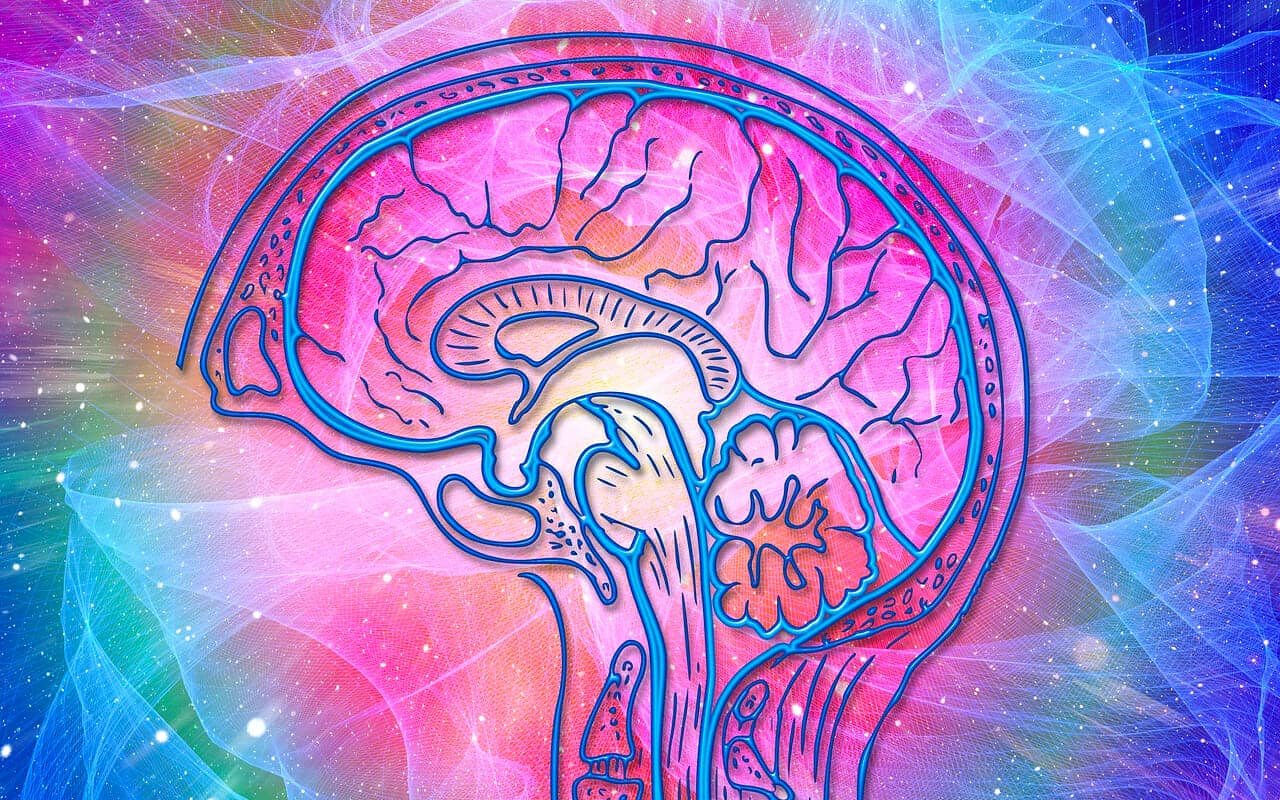 Declarative memory is used when consciously recalling information, big or small, usually in a sustained way.
Declarative memory is used when consciously recalling information, big or small, usually in a sustained way.
For example, try it now:
What’s the name of your first friend in school? Can you think about a specific event from the time you spent together?
When I do this, my friend Ryan comes to mind. He was the first person to show me an American dollar, something that was unusual to see way up north in Canada.
These facts about what took place, where we were and my personal familiarity with the memory:
It all belongs to declarative memory and is quite different from nondeclarative memory for reasons we’ll discuss on this page.
So if you’re ready to take a deep dive into the nature of declarative memory and the role it plays in human experience, let’s get started!
What Is Declarative Memory?
Declarative memory is another term for explicit memory. It’s also sometimes called conscious memory.
William James first defined this type of memory back in 1890 when he wrote:
The knowledge of a former state of mind after it has already once dropped from consciousness; or rather it is the knowledge of an event, or fact, of which we have not been thinking, with the additional consciousness that we have thought or experienced it before.
Note the nuance here:
Declarative memory isn’t necessarily true. Sometimes we confabulate certain facts, which means that memories can get distorted.
Dr. Gary Small has discussed our memory as a kind of neighborhood in which parts of our memories travel from house to house, getting changed each and every time they travel.
Nonetheless, declarative memory is the conscious awareness of knowledge that something in the past happened to you. And more often than not, our declarative memories are accurate enough.
The Science of Declarative Memory
Scientists use the term encoding to describe how memories form in the first place. A declarative memory is better when the encoding is elaborate and deep. But all too often, our encoding is limited and superficial, which is why I have shared these elaborative encoding exercises with you.
In the absence of such exercises, a lot of the depth of encoding comes down to focused attention. If you’re not interested in something, you’re more likely to encode in a shallow way.
But when we’re interested in topics and having fun, encoding at a deep level tends to happen very quickly.
The Role of Declarative Memory Over Time
Once encoding has been accomplished, declarative memories must be stored for future access in long-term memory.
Once the encoding and storage stages are complete, scientists call the result an engram. This term literally refers to the sum total of all the changes in the brain from the moment of perception to the ushering of the information into storage.
Engrams are distributed across the brain. Different brain regions seem to be specialized for particular kinds of storage to help with particular kinds of information retrieval.
Take chess openings, for example. William Chase and Herbert Simon asked chess players of varying levels of skill to analyze a chessboard featuring between 26-32 chess pieces arranged in actual configurations you might see in a game.
They found that Grandmasters vastly outperformed the analytical tasks they were given when looking at actual games.
However, when the scientists repeated the experiment with the pieces distributed randomly on the board, Grandmasters did no better than anyone else at recalling details of the chessboard. This is because the trained regions of their brains could not help them in this new context.
For this reason, when you wish to improve your working memory, it’s important to note that playing games might build you skills within the game environments. But those skills might not transfer much, and possibly not at all.
Declarative Memory Examples
Remember how I gave a declarative memory definition above by saying that it’s the conscious recall of memories in a sustained way?
This means that accessing the memory takes place over time, often substantial amounts of time.
Here are some examples:
One: Where You Were When Something Happened
I was in a cafeteria at York University when a friend called. He said, “Find a TV!”
“What’s going on?” I asked, but all he could do was repeat himself.
That was the morning of September 11, 2001. And when I finally found a television, I was just in time to see the second tower struck during the September 11 attacks.
In this sustained example of flashbulb memory, I’m drawing upon semantic facts and episodic memory. It’s an autobiographical memory too, and the common denominator amongst all of them is that I am consciously aware that all of the material is memory.
Two: Trivia
Who doesn’t love to play from home during an episode of Jeopardy?
As the answers appear on the screen, you get a great brain workout trying to form the answer in the form of question.
This is all declarative memory due to your conscious engagement in the process. It would be the same thing if you were sharing details about your favorite author, composer or artist.
Three: Locations And Directions
Locations are related to trivia in some contexts. But more broadly, if someone asks you for directions, you’ll be drawing on your declarative memory to explain how a person can find the desire target.
This process will take place even if you have aphantasia, which is the lack of a mind’s eye. People with this condition can both give and follow directions.
That said, as science journalist Christopher Kemp has shown in Dark & Magical Places, not everyone has the same navigation abilities. It’s not entirely clear if the issues he outlines come down to declarative memory, but something called place cells are involved in navigational accuracy.
Four: Critical Thinking
Anytime you turn on your thinking engines, you’ll be drawing upon declarative memory.
General reasoning draws upon facts, as does specific, objective reasoning.
And whenever you’ve got your inner Sherlock running to deduce or induce conclusions, you’ll probably also be drawing upon facts you already know.
What’s the Difference Between Declarative and Nondeclarative Memory?
In brief, it comes down to your conscious intention to recall information. Whereas with implicit memory (also known as nondeclarative memory you’re not conscious of either learning or recalling, declarative memory involves awareness.
Larry R. Squire highlights another key difference in the Journal of Neuroscience. Your declarative memory can dictate how you describe your behavior in response to stimuli. As he explains it:
An aversive childhood event such as being knocked down by a large dog might lead to a stable declarative memory for the event itself as well as a long-lasting fear of dogs (a nondeclarative memory) that is experienced as a personality trait rather than as a memory.
In other words, our self-perception of early experiences guides how we describe their influence on their lives. But the influence itself comes from an early, nondeclarative memory experience. Procedural memory can also play a role, such as constantly acting out a learned helplessness around dogs.
How To Avoid The Corruption Of Your Declarative Memory
As you’ve discovered, this aspect of your memory is not bullet proof.
You can consciously feel that a memory is 100% accurate, but wind up recalling things that are either exaggerated or simply not true.
Fortunately, there are ways to fend this off from happening.
For one thing, you can see a lot of improvement simply by focusing on improving your sleep.
You can also use memory techniques. There are countless studies showing just how strong these methods are for improving your ability to recall information accurately. Mnemonology is one particularly good and scholarly book that makes these studies accessible to anyone.
Other options involve studying music, learning languages or learning to give speeches. You can also focus on preserving your non-declarative memory as an indirect approach.
If you’d like help in any of these areas, I suggest you start with my FREE Memory Improvement Kit:
It will help you commit anything you wish to memory.
And give your declarative memory a great workout too.
So what do you say?
Do you now understand this critical aspect of your memory?
Get out there and “declare” that you are a master of memory and put it to good use. It’s a powerful asset!
Related Posts
- Memory Athlete Braden Adams On The Benefits Of Memory Competition
Braden Adams is one of the most impressive memory athletes of recent times. Learn to…
- Next Level Memory Training Secrets with USA Memory Champ John Graham
John Graham, 2018 USA Memory Champion teaches you the habits and strategies that helped him…
- 2019 Canadian Memory Champion Reveals His Memory Secrets
James Gerwing completed the Magnetic Memory Method Masterclass a while ago. In 2019, he became…






